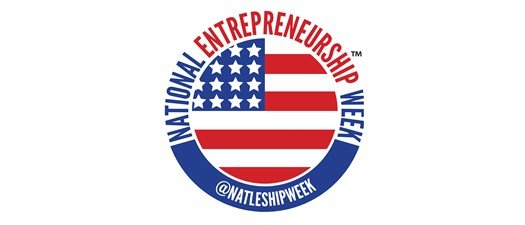Money Moves: Leveling Up Financial Smarts
Financial literacy is no longer optional—it’s a necessity. And in today’s fast-moving economy, the ability to understand money isn’t just a personal skill—it’s a business advantage.
April marks Financial Literacy Month, a national reminder that knowing how to manage money, build credit, reduce debt, and make smart investments is essential for every entrepreneur, especially in underserved communities where access to generational wealth has been historically limited.
But here's the challenge: while financial literacy is more important than ever, many people in the U.S. are still navigating financial systems without the knowledge or tools to succeed.
The Financial Literacy Gap is Real
According to the National Financial Educators Council, the average score on the National Financial Literacy Test is just 67%. That means the majority of Americans lack a strong understanding of basic concepts like budgeting, interest rates, and credit management.
In Texas, recent mandates are pushing schools to include personal finance in high school curricula. As of Fall 2022, Texas now requires a one-semester personal financial literacy course for graduation—a big win for long-term impact. But for adults, entrepreneurs, and small business owners already in the workforce, there's no built-in support. Many are still playing catch-up.
And the consequences are more than academic.
In a recent report by the Federal Reserve Bank of Dallas, researchers found that areas with low financial literacy also face higher poverty rates, greater financial stress, and reduced access to capital. These patterns are especially severe in historically marginalized communities, where mistrust of banking systems and lack of generational knowledge can limit upward mobility.
Why It Matters for Entrepreneurs
Financial literacy directly impacts a business’s ability to grow. From pricing services and negotiating contracts to securing loans and managing payroll, every major decision is tied to your financial confidence.
Here are just a few areas where financial education makes or breaks small businesses:
Budgeting & Cash Flow: Without a clear understanding of incoming and outgoing funds, businesses risk overspending or running out of working capital.
Credit Management: Building business credit opens doors to funding, but many entrepreneurs don’t realize how it differs from personal credit.
Debt & Loans: Knowing when—and how—to borrow is key. Mismanaged debt can cripple growth.
Taxes & Compliance: Filing late or incorrectly isn’t just frustrating—it’s costly.
Investments: Strategic reinvestment decisions require clarity and long-term thinking, not guesswork.
Unfortunately, many business owners don’t seek support until they’re already in financial trouble.
Financial Literacy Is a Civil Rights Issue
The UNT Dallas College of Law recently published a paper calling financial education a matter of equity, especially for Black and Brown communities. The report emphasizes how generations of exclusion from homeownership, higher education, and capital access have made financial literacy a critical gap to fill, not just for economic health, but for justice.
Teaching budgeting, debt management, and credit building isn't just helpful—it’s transformative.
Entrepreneurs who understand money are more likely to build wealth, employ others, and contribute to the stability of their communities. They’re also more resilient during recessions, layoffs, or market disruptions.
Building Better Habits Starts Small
Financial literacy doesn’t require a finance degree. It starts with small, consistent actions:
Track your business and personal expenses separately.
Use free or low-cost software to budget monthly.
Pull your credit report annually.
Set a savings goal, even if it's modest.
Talk to a financial coach or join a workshop.
Learn the basics of business credit and how to build it.
Start asking questions—there’s no shame in learning as you go.
And for those just starting, Emerge and Rise™ offers personalized financial coaching, funding pathways, and workshops designed to meet you where you are—no jargon, no judgment.
Let’s Raise the Bar Together
As we celebrate Financial Literacy Month, it’s time to move beyond surface-level awareness. This is about access. It’s about equity. And it’s about giving every entrepreneur the chance to make smarter decisions that lead to real, lasting change.
Because when people understand money, they change their lives. When entrepreneurs understand money, they change communities.
Ready to strengthen your financial confidence?
Emerge and Rise™ helps small business owners take control of their finances with clear, accessible guidance. From free tools to coaching and funding opportunities, we’re here to help you grow wisely.
Your donations make our work possible.
When you give to Impact, you provide resources that transform the community.





